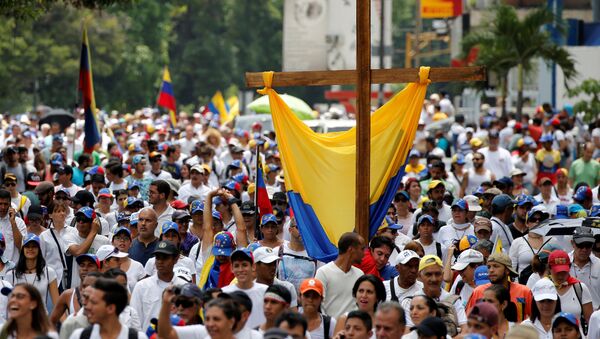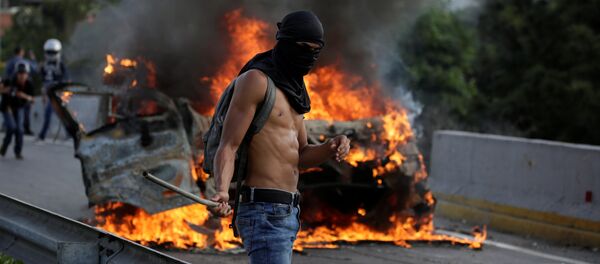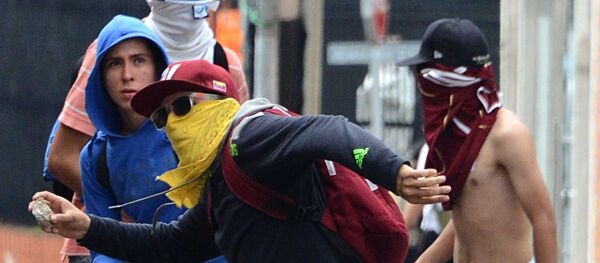For example, an April 24 opinion piece by the Washington Times is entitled "Venezuela's coming civil war: Maduro is arming his thugs to crush the democratic hopes of his desperate people."
Reuters took a more subtle approach, reporting casualties among civilians without naming who fired the shots, on April 25.
"A 42-year-old man who worked for local government in the Andean state of Merida died from a gunshot in the neck at a rally in favour of President Nicolas Maduro's government, the state ombudsman and prosecutor's office said," the report reads.
"Another 54-year-old man was shot dead in the chest during a protest in the western agricultural state of Barinas, the state prosecutor's office added without specifying the circumstances," it continues.
Major media, such as the Miami Herald and CNN, reported in the last few days that the US will have to consider imposing "serious sanctions" on Venezuela, should Maduro fail to host "free and fair" elections, allowing opposition leaders to campaign, August recalled. The US media also purposefully omits reports of demonstrations by the Chavistas — the supporters of the acting government.
The Green Left news website, on the other hand, reported "tens of thousands" of pro-government activists. Deutsche Welle carefully refrained from separating the sides, giving an overall estimate of 6 million people protesting on April 19. August claimed there were 3 million pro-government protesters across the whole country. All agree that these demonstrations have been the largest in the history of the nation.
Vivanco and Taraciuk's piece promotes the narrative that all of the deaths and violence in the country are "rightfully" blamed on Maduro, and that international pressure is needed to restore "human rights and democracy in Venezuela."
"This is one big lie, if I may be quite frank," August commented.
The US may be up to more than just harsh words in the media, August noted. On April 24, the Maduro government seized a General Motors factory in Venezuela, forcing the company to flee the country, leaving 2,700 people without jobs.
Officially, GM did not pay its taxes and refused to conform to "basic economic and financial rules," August explains.
But he speculates that GM could have been involved in a darker scheme, similar to what happened in Chile in the 1973 coup d'état against Salvador Allende government.
"Main enterprises in Venezuela — General Motors, but there are others as well — were specifically organizing to hoard goods, to keep it away from the people, in order to create problems, to create a situation where people are starving, etc.," August told Becker, adding that US companies also cut flights to Venezuela in an attempt to harm its income from tourism.
"It is undeniable that there are internal problems and weaknesses in the economy under the Bolivarian Revolution, but the main feature of the problem at this time is what has been induced and still being induced by the US and its allies," he said.




